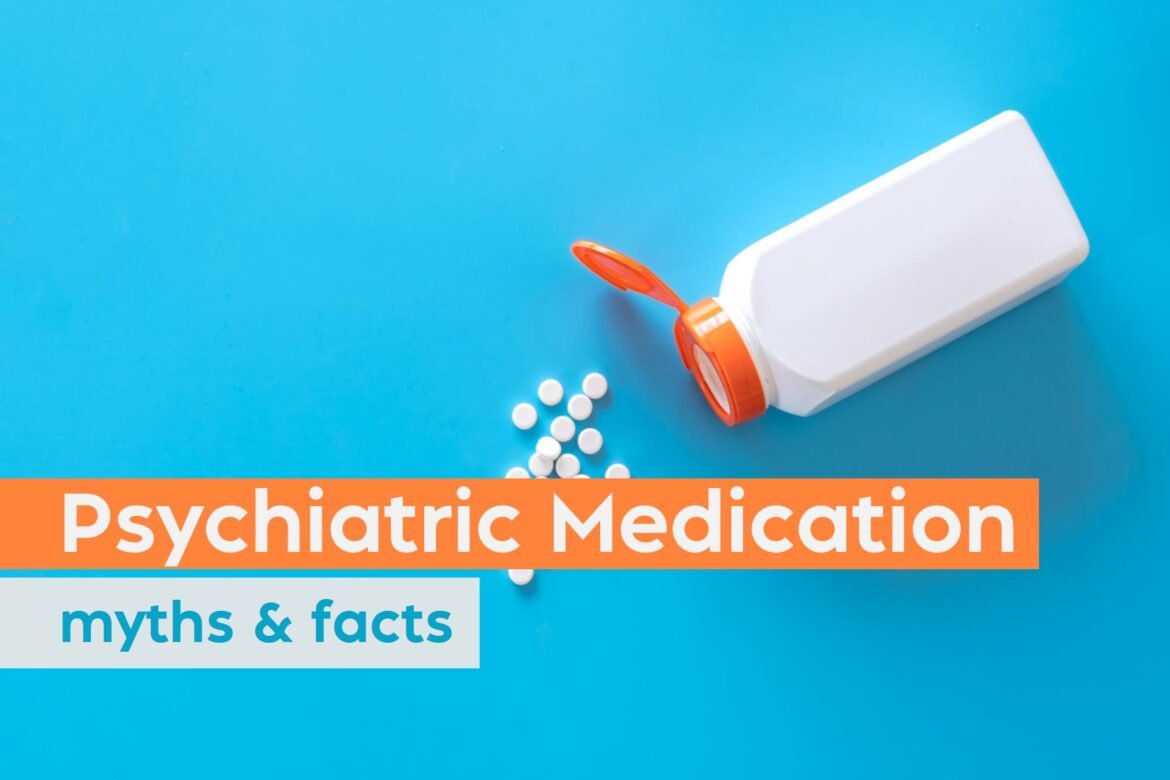Introduction
Mental health medications have transformed the way psychiatric conditions are treated. From antidepressants to mood stabilizers and antipsychotics, these treatments help millions manage symptoms and lead healthier lives. Yet, myths and misconceptions often prevent people from seeking or staying on medication. Let’s separate fact from fiction to better understand the role of medication in mental health care.
Myth 1: “Taking medication means I’m weak.”
Fact: Mental illness is a medical condition, not a sign of weakness. Just like insulin helps manage diabetes, psychiatric medication helps regulate brain chemistry. Using treatment tools shows strength and commitment to recovery.
Myth 2: “Psychiatric medications change who I am.”
Fact: Properly prescribed medications are meant to reduce disruptive symptoms—not erase personality. Many people report feeling more like themselves once symptoms are controlled.
Myth 3: “Once you start, you can never stop.”
Fact: While some medications are used long-term, many people eventually taper off under a doctor’s guidance. The need depends on the disorder, severity, and individual progress.
Myth 4: “All psychiatric drugs are addictive.”
Fact: Most common psychiatric medications, like SSRIs for depression or mood stabilizers for bipolar disorder, are not addictive. Some anti-anxiety drugs can be habit-forming, but they are carefully monitored by professionals.
Myth 5: “Medication alone will fix everything.”
Fact: Medication is one tool, but therapy, lifestyle changes, and support systems are also essential. The best results often come from combining treatments.
Common Types of Psychiatric Medications
-
Antidepressants: Treat depression, anxiety, and some chronic pain.
-
Antipsychotics: Used for schizophrenia, bipolar disorder, and severe depression.
-
Mood stabilizers: Manage mood swings in bipolar disorder.
-
Anti-anxiety medications: Relieve short-term intense anxiety.
-
Stimulants: Help improve focus in ADHD.
Benefits of Medication in Mental Health
-
Stabilizes mood and reduces extreme emotional shifts
-
Improves concentration and sleep patterns
-
Makes therapy more effective by reducing severe symptoms
-
Helps prevent relapse in chronic conditions
Risks and Considerations
Like any medical treatment, medications can cause side effects. These range from mild (dry mouth, drowsiness) to more serious. That’s why ongoing communication with a psychiatrist is vital for adjusting doses or switching medications when needed.
Conclusion
Medications play a crucial role in mental health treatment, but they are not a “magic fix.” They work best as part of a broader care plan that includes therapy, self-care, and support. Dispelling myths allows people to make informed decisions about their mental health journey.
FAQs
Q1: How long does it take for medication to work?
Most antidepressants and mood stabilizers take 4–6 weeks to show full effects.
Q2: Can I stop taking medication when I feel better?
Not without medical guidance. Stopping suddenly can cause withdrawal symptoms or relapse.
Q3: Will I need medication forever?
Not necessarily. Some people use medication short-term, while others benefit from long-term management.
Q4: What if I experience side effects?
Talk to your psychiatrist immediately. Adjustments or alternative medications are often available.
Q5: Can medication replace therapy?
For some mild conditions, medication alone helps, but most people benefit from combining both.
